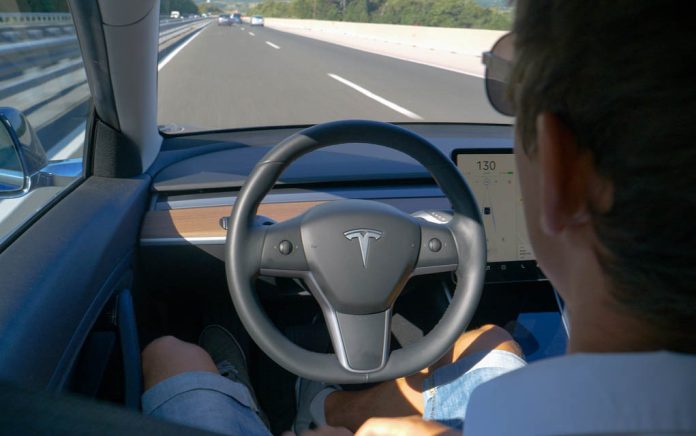
Waymo’s robotaxi service is rapidly conquering the American taxi market with 250,000 weekly rides.
Key Takeaways
- Waymo currently operates 1,500 fully autonomous vehicles across Phoenix, San Francisco, Los Angeles, and Austin, providing over 250,000 paid trips weekly
- The company is expanding to Atlanta via Uber partnership this year, with Washington DC and Miami planned for 2026
- In San Francisco, Waymo has captured 27% market share, surpassing Lyft, as users perceive the vehicles as safer than human-driven cars
- Despite impressive growth, profitability remains distant with Alphabet’s “Other Bets” division recording net losses of $1.2 billion in Q1
Rapid Market Expansion Despite Opposition
Waymo’s autonomous taxi service is rapidly expanding across America, transforming urban transportation with its driverless vehicles. Currently operating in Phoenix, San Francisco, Los Angeles, and Austin, the company delivers more than 250,000 paid trips weekly to customers who increasingly trust the technology. This remarkable adoption rate comes despite growing opposition from those concerned about job displacement in the traditional taxi industry.
The company’s growth strategy includes ambitious expansion plans to Atlanta through an Uber partnership later this year, followed by Washington, DC, and Miami in 2026. These moves are supported by significant infrastructure investments, including a new 239,000-square-foot factory near Phoenix that will help increase production capacity. Waymo is also bolstering its fleet with 2,000 additional Jaguar I-Pace electric vehicles, reflecting the company’s commitment to environmentally friendly transportation solutions that align with conservative values of innovation through private enterprise rather than government mandates.
#Waymo autonomous taxis @Waymo is way bigger than you realize. Owned by @Google these @Jaguar SUVs are BLOWING UP here are the latest stats:
Waymo, Alphabet’s autonomous vehicle unit, is currently delivering more than 250,000 paid robotaxi rides per week in the U.S., as reported… pic.twitter.com/w3vSN3W6qP
— MartyParty (@martypartymusic) May 20, 2025
Safety Records and Market Dominance
Waymo’s impressive safety record is becoming one of its strongest selling points. The company claims its autonomous vehicles experience 85% fewer crashes with serious injuries compared to human drivers, a statistic that has helped it capture a significant market share in cities where it operates. In San Francisco, where Waymo launched commercial service in 2023, the company has already secured 27% of the ride-hailing market, surpassing established competitor Lyft. This rapid adoption demonstrates consumer willingness to embrace new technology when it delivers measurable benefits.
“People quickly feel comfortable because they perceive these cars as safer than human-driven vehicles,” said Billy Riggs
The company’s vehicles have developed what experts describe as “humanistic driving behavior” through extensive data collection and algorithmic adjustments. This programming approach allows the vehicles to navigate complex urban environments while maintaining passenger comfort, addressing one of the key concerns about autonomous technology. Unlike human drivers who might respond emotionally to challenging road situations, Waymo’s vehicles maintain consistent behavior patterns that prioritize safety and efficiency without sacrificing the experience passengers expect from transportation services.
Financial Challenges and Future Competition
Despite its technological achievements and market growth, Waymo faces significant financial hurdles on its path to profitability. Each vehicle in the company’s fleet costs approximately $100,000, creating substantial capital requirements as the service expands. These costs, combined with ongoing research and development expenses for the company’s sixth-generation self-driving technology, have contributed to continued losses. Alphabet’s “Other Bets” division, which includes Waymo, recorded net losses of $1.2 billion in the first quarter alone, highlighting the financial challenges facing even the most advanced players in this sector.
“There still could be a scenario where Waymo loses. It’s not unrealistic that some Chinese competitor comes in and wins,” said Billy Riggs
Competition remains a significant concern for Waymo’s long-term dominance. Chinese companies are investing heavily in autonomous vehicle technology, potentially threatening Waymo’s leadership position through lower-cost alternatives or technological breakthroughs. This international competition highlights the importance of maintaining American technological leadership through private sector innovation rather than excessive regulation that could stifle progress. Waymo is responding to these competitive pressures by exploring strategic partnerships with established automotive manufacturers like Toyota and Hyundai, which could help reduce production costs while expanding its technological footprint.
International Expansion and Technological Development
Looking beyond the American market, Waymo is preparing for its first international expansion with planned operations in Tokyo. This move represents a significant test for the company’s technology in a very different urban environment with unique cultural and regulatory challenges. Meanwhile, the company continues to push technological boundaries by testing fully autonomous rides on freeways in Phoenix, moving beyond the urban street environments where most autonomous vehicles currently operate. These developments demonstrate Waymo’s commitment to advancing autonomous technology despite the substantial financial investments required.
“Even when humans challenge them, the vehicles don’t respond aggressively. They’re better versions of ourselves.” – Billy Riggs
While focusing primarily on passenger services, Waymo has strategically scaled back its efforts in autonomous trucking to concentrate resources on the ride-hailing market where it sees greater near-term potential. This decision reflects the company’s pragmatic approach to balancing innovation with financial sustainability. As Waymo continues expanding both geographically and technologically, it represents American entrepreneurial spirit at work, creating next-generation transportation solutions through private enterprise rather than government intervention or taxpayer subsidies, a model that resonates with conservative values of free-market innovation.







